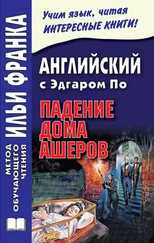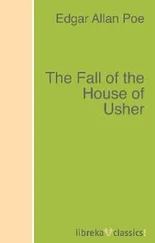... his head
Crested aloft, and carbuncle his eyes—
D’Herbelot, pp. 392, 395, 780, etc. Brighte, On Melancholie , p. 321. Paradise Lost , IX, 499.
100. ... have you false keys? Come to the dark chamber It was the office of Shaban, as chief eunuch, to keep the key of the ladies’ apartment. In the Story of Ganem, Haroun al Raschid commands Mesrour, the chief of the eunuchs, “to take the perfidious Fetnah, and shut her up in the dark tower.” That tower was within the inclosure of the palace, and commonly served as a prison for the favourites who might chance to disgust the caliph.
101. ... their faith is mutually plighted When females in the East are betrothed, their palms and fingers are tinged of a crimson colour, with the herb hinnah. This is called “the crimson of consent.”— Tales of Inatulla , vol. ii, p. 15.
102. ... violate the rights of hospitality So high an idea of these rights prevails amongst the Arabians, that “a bread and salt traitor,” is the most opprobrious invective with which one person can reproach another.—Richardson’s Dissertation on the Languages, etc., of Eastern Nations , p. 219. See also the Story of Ali Baba and The Forty Thieves, in the Arabian Nights , vol. iv, p. 166.
103. ... narcotic powder A drug of the same quality, mixed in lemonade, is given to Zobeide, in the Story of Ganem.
104. Funeral vestments were prepared; their bodies washed, etc. The rites here practised had obtained from the earliest ages. Most of them may be found in Homer and the other poets of Greece. Lucian describes the dead in his time as washed, perfumed, vested, and crowned, ὡραιος ανθεσιν, with the flowers most in season; or, according to other writers, those in particular which the deceased were wont to prefer. The elegant editor of the Ruins of Palmyra mentions the fragments of a mummy found there, the hair of which was plaited exactly in the manner as worn at present by the women of Arabia. The burial dress from the days of Homer hath been commonly white, and amongst Mahometans is made without a seam, that it may not impede the ceremonial of kneeling in the grave, when the dead person undergoes examination.—Homer, Euripides, etc., passim . Lucian, tom. ii, p. 927. Paschal, De Coron. , p. 225. Ruins of Palmyra , pp. 22, 23. Iliad , xviii, 352. Relig. Cerem. , vol. vii, p. 117.
105. ... all instruments of music were broken Thus, in the Arabian Nights : “Haroun al Raschid wept over Schemselnihar, and, before he left the room, ordered all the musical instruments to be broken.”—Vol. ii, p. 196.
106. ... imans began to recite their prayers An iman is the principal priest of a mosque. It was the office of the imans to precede the bier, praying as the procession moved on.— Relig. Cerem. , vol. vii, p. 117.
107. The wailful cries of La Ilah illa Alla! This exclamation, which contains the leading principle of Mahometan belief, and signifies there is no God but God , was commonly uttered under some violent emotion of mind. The Spaniards adopted it from their Moorish neighbours, and Cervantes hath used it in Don Quixote : “En esto llegáron corriendo con grita, LILILIES (literally professions of faith in Alla ), y algazara los de las libreas adonde Don Quixote suspenso y atónito estava.”— Parte segunda , cap. lxi, tom. iv, p. 241. The same expression is sometimes written by the Spaniards, Lilaila , and Hila hilahaila .
108. ... the angel of death had opened the portal of some other world The name of this exterminating angel is Azrael , and his office is to conduct the dead to the abode assigned them; which is said by some to be near the place of their interment. Such was the office of Mercury in the Grecian mythology.—Sale’s Preliminary Discourse , p. 101. Hyde, in notis ad Bobov. , p. 19. R. Elias, in Tishbi . Buxtorf, Synag. Jud. et Lexic. Talmud . Homer, Odyssey .
109. Monker and Nakir These are two black angels of a tremendous appearance, who examine the departed on the subject of his faith: by whom, if he give not a satisfactory account, he is sure to be cudgelled with maces of red-hot iron, and tormented more variously than words can describe.— Religious Ceremonies , vol. vii, pp. 59, 68-118; vol. v, p. 290. Sale’s Preliminary Discourse , p. 101.
110. ... the fatal bridge This bridge, called in Arabic al Sirat , and said to extend over the infernal gulf, is represented as narrower than a spider’s web, and sharper than the edge of a sword. Though the attempt to cross it be—
“More full of peril, and advent’rous spirit,
Than to o’erwalk a current, roaring loud,
On the unsteadfast footing of a spear;”
yet the paradise of Mahomet can be entered by no other avenue. Those, indeed, who have behaved well need not be alarmed; mixed characters will find it difficult; but the wicked soon miss their standing, and plunge headlong into the abyss.—Pococke in Port. Mos. , p. 282, etc. Milton apparently copied from this well-known fiction, and not, as Dr. Warton conjectured, from the poet Sadi, his way—
“Over the dark abyss, whose boiling gulf
Tamely endured a bridge of wond’rous length,
From hell continued, reaching the utmost orb
Of this frail world.”
111. ... a certain series of years According to the tradition from the prophet, not less than nine hundred, nor more than seven thousand.
112. ... the sacred camel It was an article of the Mahometan creed, that all animals would be raised again, and some of them admitted into paradise. The animal here mentioned appears to have been one of those white-winged CAMELS caparisoned with gold , which Ali affirmed had been provided to convey the faithful.— Religious Ceremonies , vol. vii, p. 70. Sale’s Preliminary Discourse , p. 112. Al Jauheri. Ebno’l Athir, etc.
113. ... basket-making This sort of basket work hath been long used in the East, and consists of the leaves of the date-bearing palm. Panniers of this texture are of great utility in conveying fruits, bread, etc., whilst heavier articles, or such as require a more compact covering, are carried in bags of leather, or skin.—Hasselquist’s Voyage , p. 26.
114. ... the caliph presented himself to the emir in a new light The propensity of a vicious person, in affliction, to seek consolation from the ceremonies of religion, is an exquisite trait in the character of Vathek.
115. ... the waving of fans These fans consisted of the trains of peacocks or ostriches, whose quills were set in a long stem, so as to imbricate the plumes in the gradations of their natural growth. Fans of this fashion were formerly used in England.
116. ... wine hoarded up in bottles, prior to the birth of Mahomet The prohibition of wine by the Prophet materially diminished its consumption within the limits of his own dominions. Hence a reserve of it might be expected of the age here specified. The custom of hoarding wine was not unknown to the Persians, though not so often practised by them as by the Greeks and the Romans. “I purchase” (says Lebeid) “the old liquor, at a dear rate, in dark leathern bottles, long reposited; or in casks black with pitch, whose seals I break, and then fill the cheerful goblet.”— Moallakat , p. 53.
117. ... excavated ovens in the rock As substitutes for the portable ovens, which were lost.
118. ... her great camel Alboufaki There is a singular and laboured description of a camel in the poem of Tarafa ; but Alboufaki possessed qualities appropriate to himself, and which rendered him but little less conspicuous than the deformed dun camel of Aad.
Читать дальше












